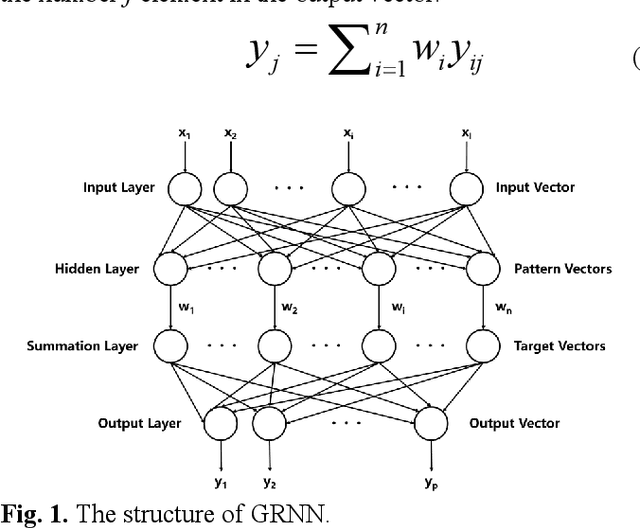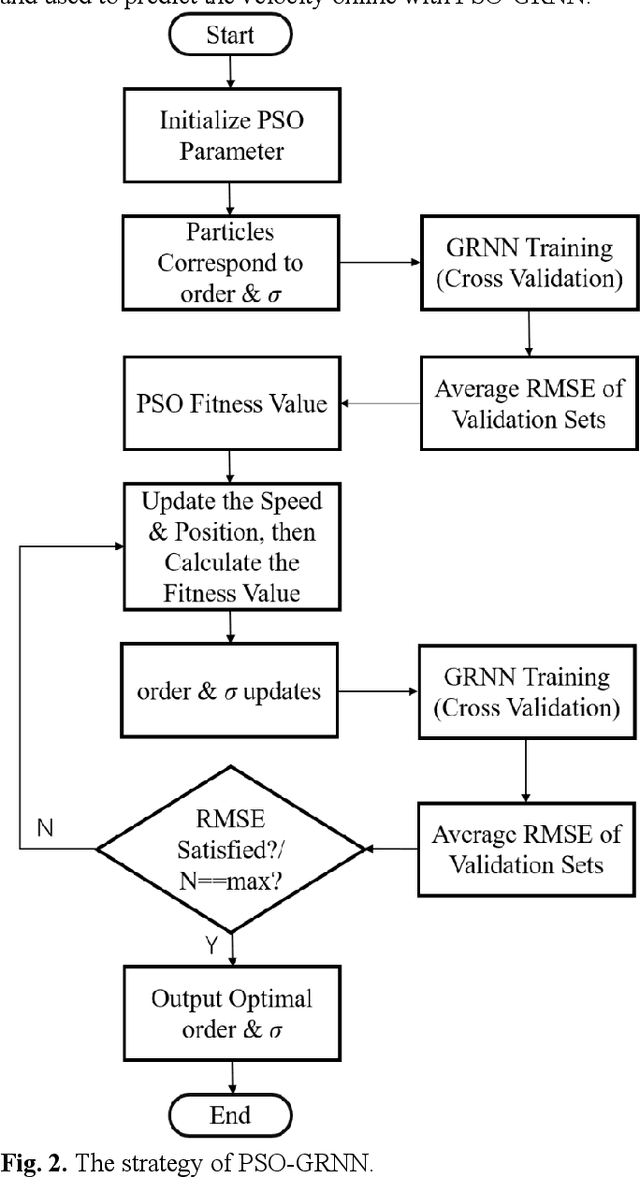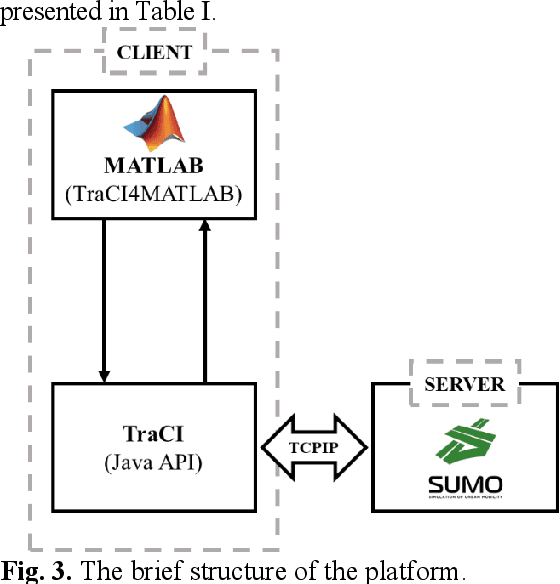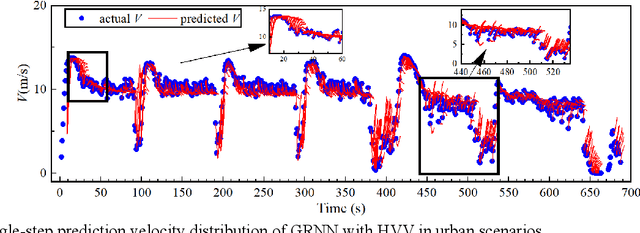Research on Self-adaptive Online Vehicle Velocity Prediction Strategy Considering Traffic Information Fusion
Paper and Code
Oct 07, 2022



In order to increase the prediction accuracy of the online vehicle velocity prediction (VVP) strategy, a self-adaptive velocity prediction algorithm fused with traffic information was presented for the multiple scenarios. Initially, traffic scenarios were established inside the co-simulation environment. In addition, the algorithm of a general regressive neural network (GRNN) paired with datasets of the ego-vehicle, the front vehicle, and traffic lights was used in traffic scenarios, which increasingly improved the prediction accuracy. To ameliorate the robustness of the algorithm, then the strategy was optimized by particle swarm optimization (PSO) and k-fold cross-validation to find the optimal parameters of the neural network in real-time, which constructed a self-adaptive online PSO-GRNN VVP strategy with multi-information fusion to adapt with different operating situations. The self-adaptive online PSO-GRNN VVP strategy was then deployed to a variety of simulated scenarios to test its efficacy under various operating situations. Finally, the simulation results reveal that in urban and highway scenarios, the prediction accuracy is separately increased by 27.8% and 54.5% when compared to the traditional GRNN VVP strategy with fixed parameters utilizing only the historical ego-vehicle velocity dataset.
 Add to Chrome
Add to Chrome Add to Firefox
Add to Firefox Add to Edge
Add to Edge